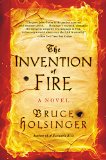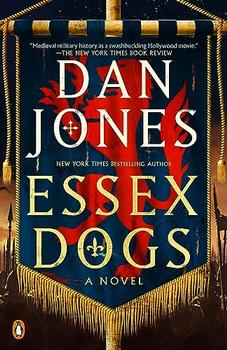Summary | Excerpt | Reviews | Beyond the book | Read-Alikes | Genres & Themes | Author Bio

Fourteenth-century London comes alive in all its color and detail in this riveting thriller featuring medieval poet and fixer John Gower—a twisty tale rife with intrigue, danger mystery, and murder.
London, 1386: A mass murder has taken place within the city walls. Sixteen corpses have been dumped where they are sure to be found, bearing wounds like none seen before. John Gower, middling poet and expert trader in secrets, is summoned to investigate the killings even as the ruthless mayor of London seeks to thwart an open inquiry for reasons unknown. Gower learns that the men have fallen victim to handgonnes, new and terrifying weapons that threaten to change the future of war. Challenged by deception and treachery on all sides, Gower struggles against his failing vision even as his inquiries take him from the City's labyrinthine slums to the port of Calais to the forests of Kent, where his friend Geoffrey Chaucer serves as justice of the peace. As Gower strives to discover the source of the new guns and the identity of those who wielded them, he must risk everything to reveal the truth - and prevent a more devastating massacre on London's crowded streets ...
The Invention of Fire is a richly resplendent and descriptive murder mystery which conjures up a vivid and wholly realistic depiction of medieval London in all its loud, vibrant, filthy glory...continued
Full Review
 (637 words)
(637 words)
(Reviewed by Sinéad Fitzgibbon).
 Even though Geoffrey Chaucer, medieval England's most colorful and best-known writer is a character in The Invention of Fire, the author Bruce Holsinger chooses the lesser-known poet, John Gower, as his protagonist, relegating the mighty Chaucer to a supporting role.
Even though Geoffrey Chaucer, medieval England's most colorful and best-known writer is a character in The Invention of Fire, the author Bruce Holsinger chooses the lesser-known poet, John Gower, as his protagonist, relegating the mighty Chaucer to a supporting role.
Compared to our knowledge of Chaucer, of Gower we know relatively little. This paucity of information may indeed explain why Holsinger plumped for Gower as his protagonist - a blank canvas is much more inviting to a novelist than one which is already full of color.
Who was the real John Gower? How much of Holsinger's portrayal is based in fact, and how much is the work of fertile imagination? We tease out truth from possible fiction here.
Facts
Holsinger's Gower is...

If you liked The Invention of Fire, try these:

by Dan Jones
Published 2023
The New York Times bestselling historian makes his historical fiction debut with an explosive novel set during the Hundred Years' War.

by Qiu Xiaolong
Published 2022
The legendary Judge Dee Renjie investigates a high-profile murder case in this intriguing companion novel to Inspector Chen and the Private Kitchen Murder set in seventh-century China.